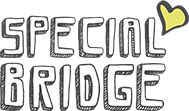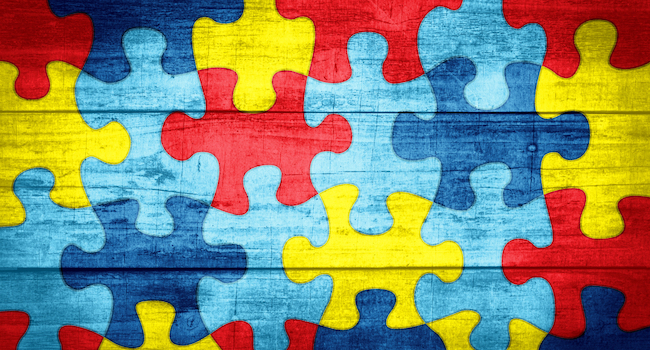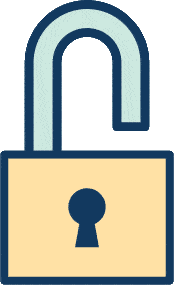Having a child with autism can be challenging, especially during the first few years of his or her life. You might even be going to different doctors and getting little to no answers.
This can be very frustrating.
If your child has autism or you suspect your child might have it, knowing the different types of autism can be very beneficial. Keep reading to learn more!
What Is Autism?
Autism is more than just one disorder. It is a spectrum of neurodevelopmental disorders which most often affect speech and behavior.
Many children with autism have a great range of abilities and lack other skills that should be present at their age. Therefore, making Autism spectrum disorder very difficult to pinpoint.
For example, many children with autism find it difficult to have back and forth conversations. Still, they score high in their ability to have a superior memory for facts and figures. For a more detailed description of the signs of ASD, keep reading.
Different Types of Autism
As stated previously, autism can be challenging to diagnose because there are different types of autism. Not to mention, the APA (American Psychiatric Association) updated the DSM-5. Previously, ASD was categorized by these four subtypes of autism-
Asperger’s syndrome: seen as the mild end of the spectrum, awkward social interactions, lack of eye contact, repetitive social behaviors, unable to read social cues and body language
Autism spectrum disorder: troubles with back and forth conversations, occasional outbursts, repeated behaviors, irregular eating, and sleeping patterns
Pervasive developmental disorder: irregular speech patterns, strictly followed daily routines, smell, taste, sound, and sight.
Childhood disintegrative disorder: sometimes seen as the severe end of the spectrum, impaired speech, incontinence, underdeveloped motor skills.
However, there is a list of general signs to look for in children. Some of which include:
- Over talking without assessing the interest of others
- Heavy liking in particular things, people, or objects
- Not accepting of changes in their daily routines
- Irregular sleep patterns
- Monotone voice
If your child posses some or most of these qualities, early intervention is essential. A medical professional can diagnose autism by assessing the signs that we listed above.
Diagnosing ASD
A diagnosis consists of in-person tests and observing the child’s interactions with a parent or caregiver. Usually, a doctor will also ask the parent/caregiver questions from the DSM–5 handbook.
As stated previously, the APA changed the handbook (DSM–5 ) from four subtypes of autism and created the term Autism Spectrum Disorder (ASD).
The DSM-5 now lists three distinct levels of ASD. This can be determined by the amount of care a person will need.
Level one: Individual suffers from communication issues, difficulty with social interactions, and making friends. Some may not like social interactions and have difficulty forming a clear sentence.
Level two: Problems with verbal and nonverbal communication, not allowing or limiting social interactions, and only interacting when it’s about their particular interest.
Level three: intense issues in verbal and nonverbal communication, critically impaired functioning in speech, almost no social interactions and short response to social interaction from others, speaking in only some words of or confound speech.
Treatment
Treatment for most mental disabilities usually includes therapy and some medication. However, the autism spectrum is a little different. There isn’t a medication that cures autism, but there are medications to relieve some side effects.
For example, there are medications to help with the accompanying mental health issues that may arise from ASD. Like anxiety, repetitive behavior, hyperactivity, concentration issues, aggression, and depression.
Studies have also shown that changes in diet and regularly taking vitamins can also help with mood shifts. Healthcare professionals also suggest that ASD therapies begin immediately after diagnosis. This can help reduce their social difficulties and allow them to improve and learn new skills before adulthood.
Some therapies may include educational, behavioral, and developmental therapy with a combination of speech, language, and occupational therapy. These all help with social communication, language skills, and overcoming other challenges.
Prognosis
The prognosis for a child with autism depends on many factors. If a child does diagnose with level one in the autism spectrum, they can live a normal life, especially when early intervention methods become implemented.
Things become more complicated for level 2 and three patients but not impossible. If they receive early intervention, normal life is possible.
However, most often than not, level 3 patients need some specialized care.
It is important to note that treatment and medication dramatically impact one’s prognosis, regardless of the level of ASD.
In recent years, the types of autism have been better studied. This has made ASD more tenantable for those affected.
Gifted Children with Autism
Many children with an autism spectrum disorder possess many benefits that others may not have. For example, children with autism tend to see the world differently. Therefore, they can offer a diverse perspective on topics.
Children with autism also possess a great sense of humor that is different than those around them. Children with autism are also very gifted in arts and music.
Lastly, many children with autism are extremely loyal to their friends and family. Once they’ve gained trust, autistic children are capable of forming long-lasting relationships!
Teens With Autism
As stated previously, the kinds of autism that are now studied have made a living with autism easier. If you’re a parent to a child with autism, you probably have many worries about the future.
However, teens with autism are still able to have high-school experience. Dating with autism is possible. But, it does come with struggles because of the social aspect of it.
For example, many autistic teens seek to date, but they have social cues and back and forth interactions. However, with the proper intervention and mentoring, an autistic teen can still build normal relationships.
Teens with autism can also participate in sports and other extracurricular activities. Sports can be beneficial and can aid in their development.
Not to mention, kids with autism have a higher chance of being obese. So doing physical activities can help reduce this risk.
Final Verdict
If you or a loved one has been diagnosed with ASD, remember you are not alone!
Autism can be challenging to deal with, but there is hope for those affected. Different types of autism are still being studied, and treatments are changing for the better.
If you have any more questions, don’t forget to visit our website for more information!




3 comments:
Anon
May 12, 2021 at 4:14 pm
It’s worth noting that the ICD did NOT change the autism designations, and some places, like where I went, are using ICD, even in the US.
Karen J Smith
May 12, 2021 at 4:19 pm
This was an excellent, succinct summary.
maddyoneil
May 17, 2021 at 4:21 pm
This is important. The reason it’s called the Autism spectrum is because it is different for different people. The different levels of Autism care being studied now because Autism can be hard to deal with. They are making living with Autism easier by studying the different types now.